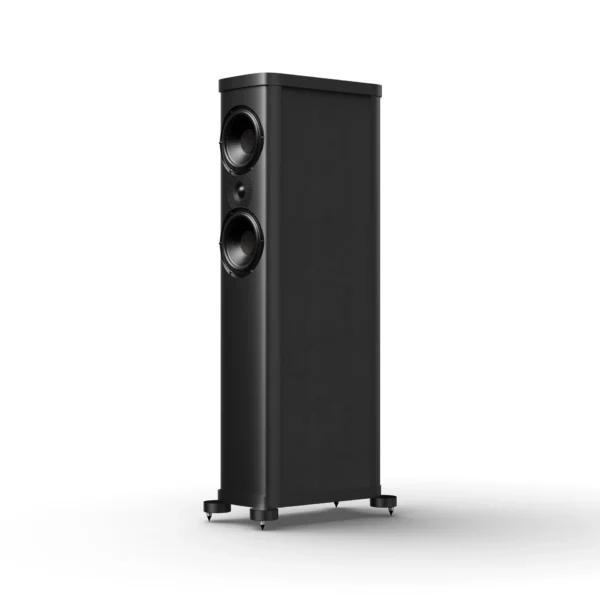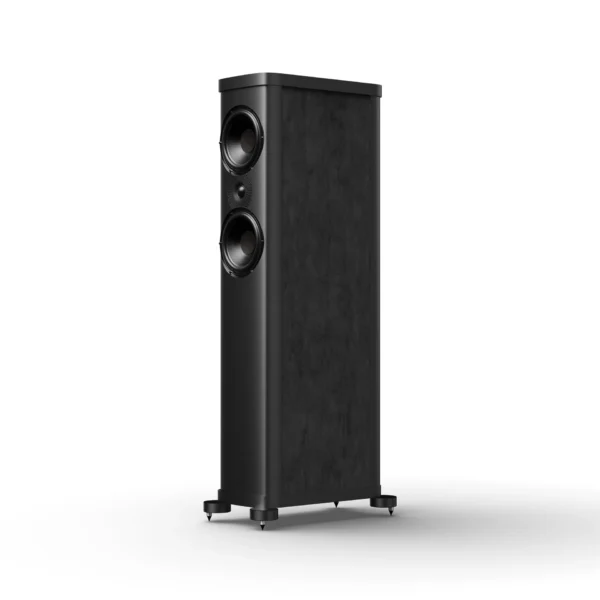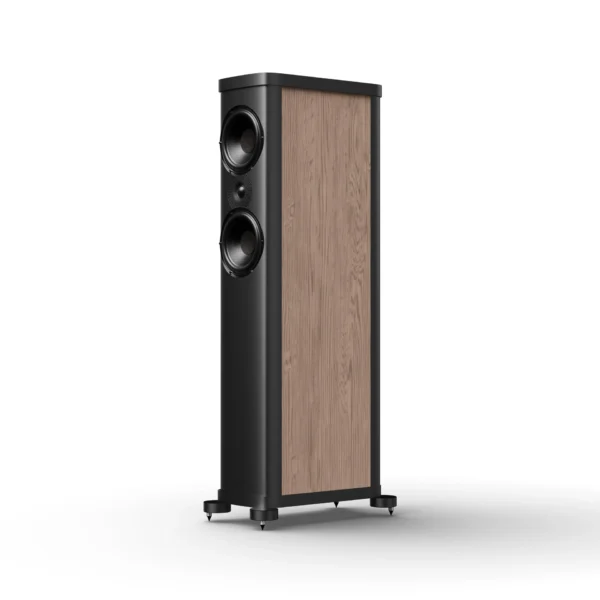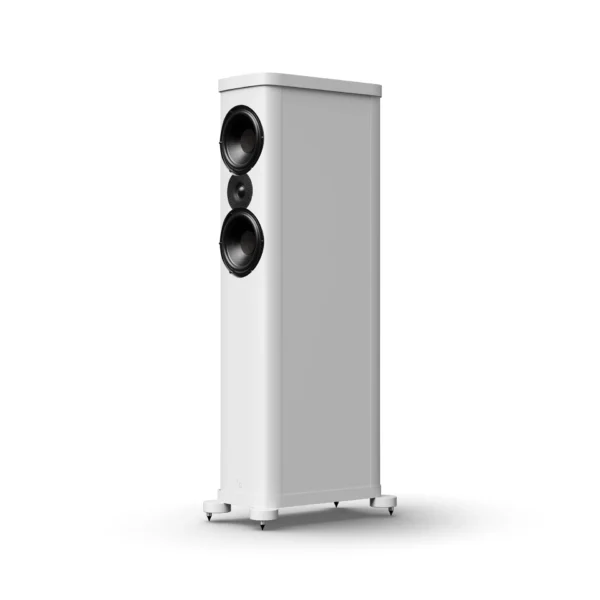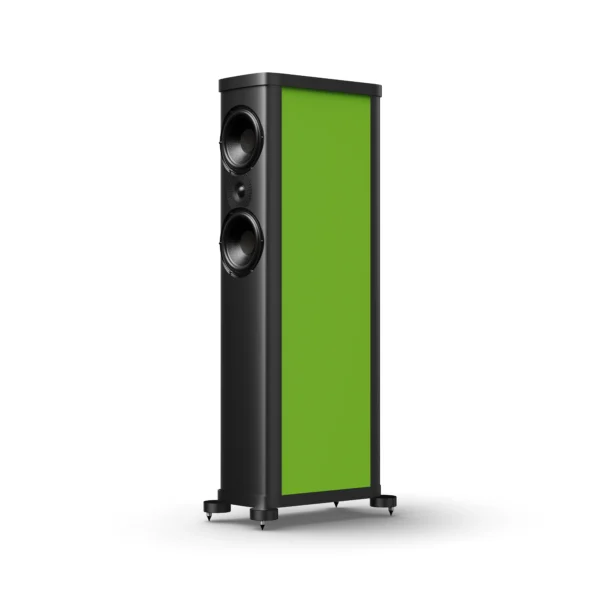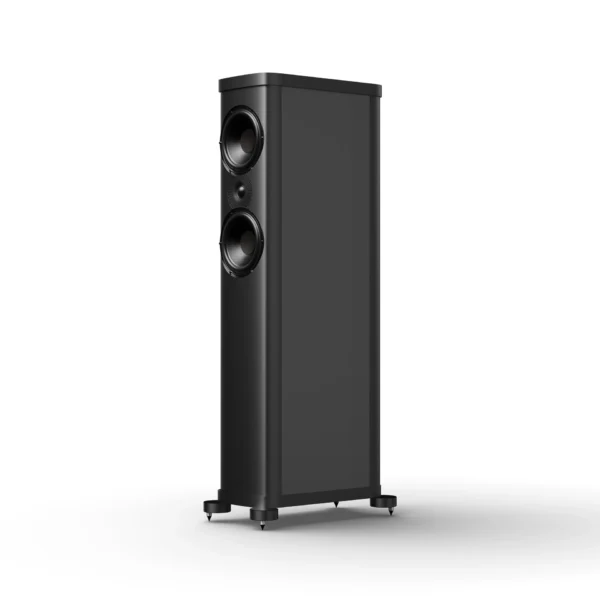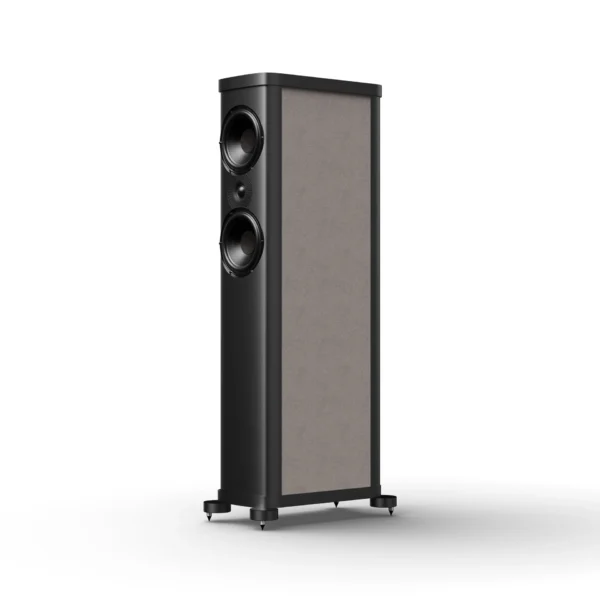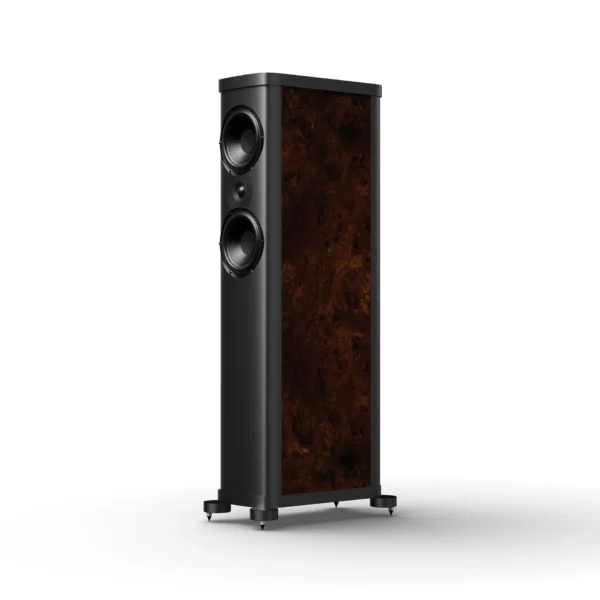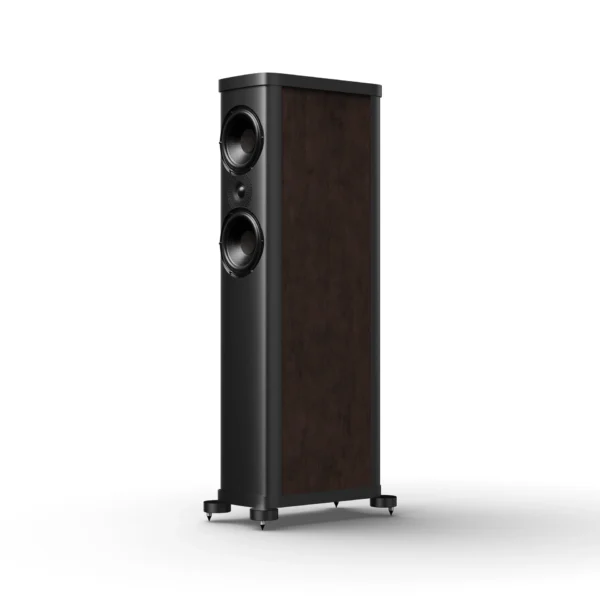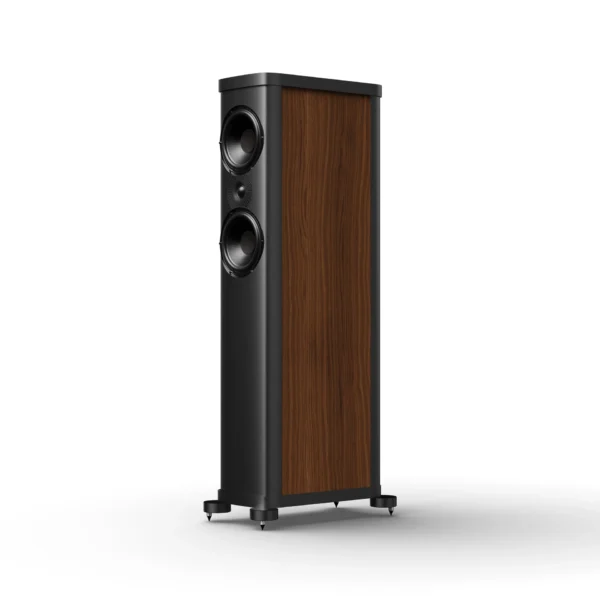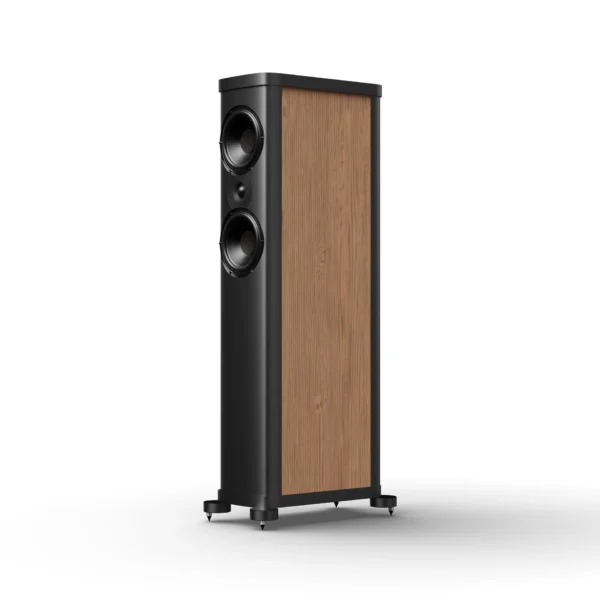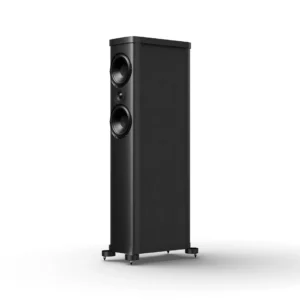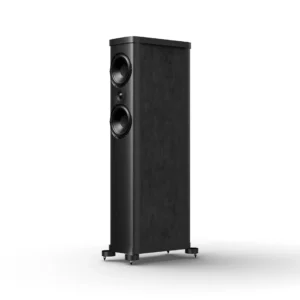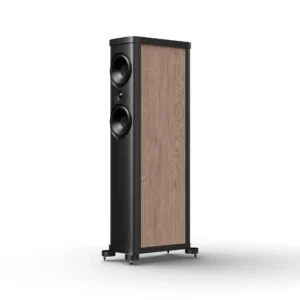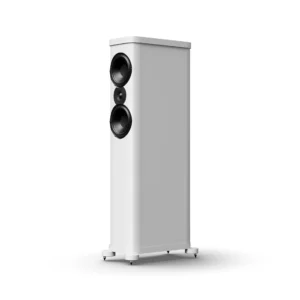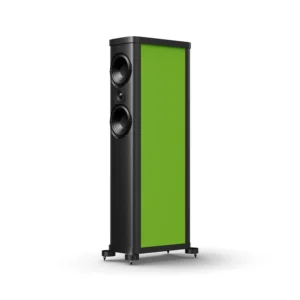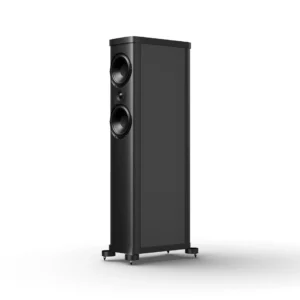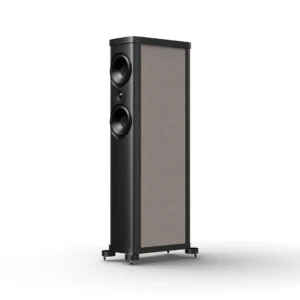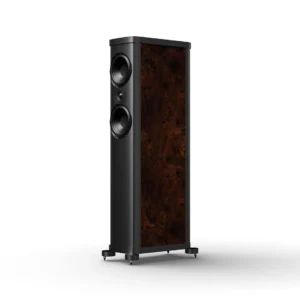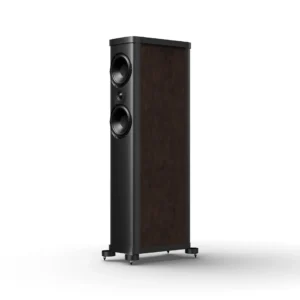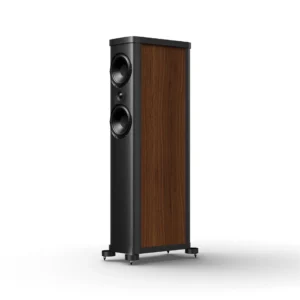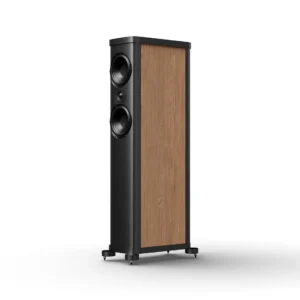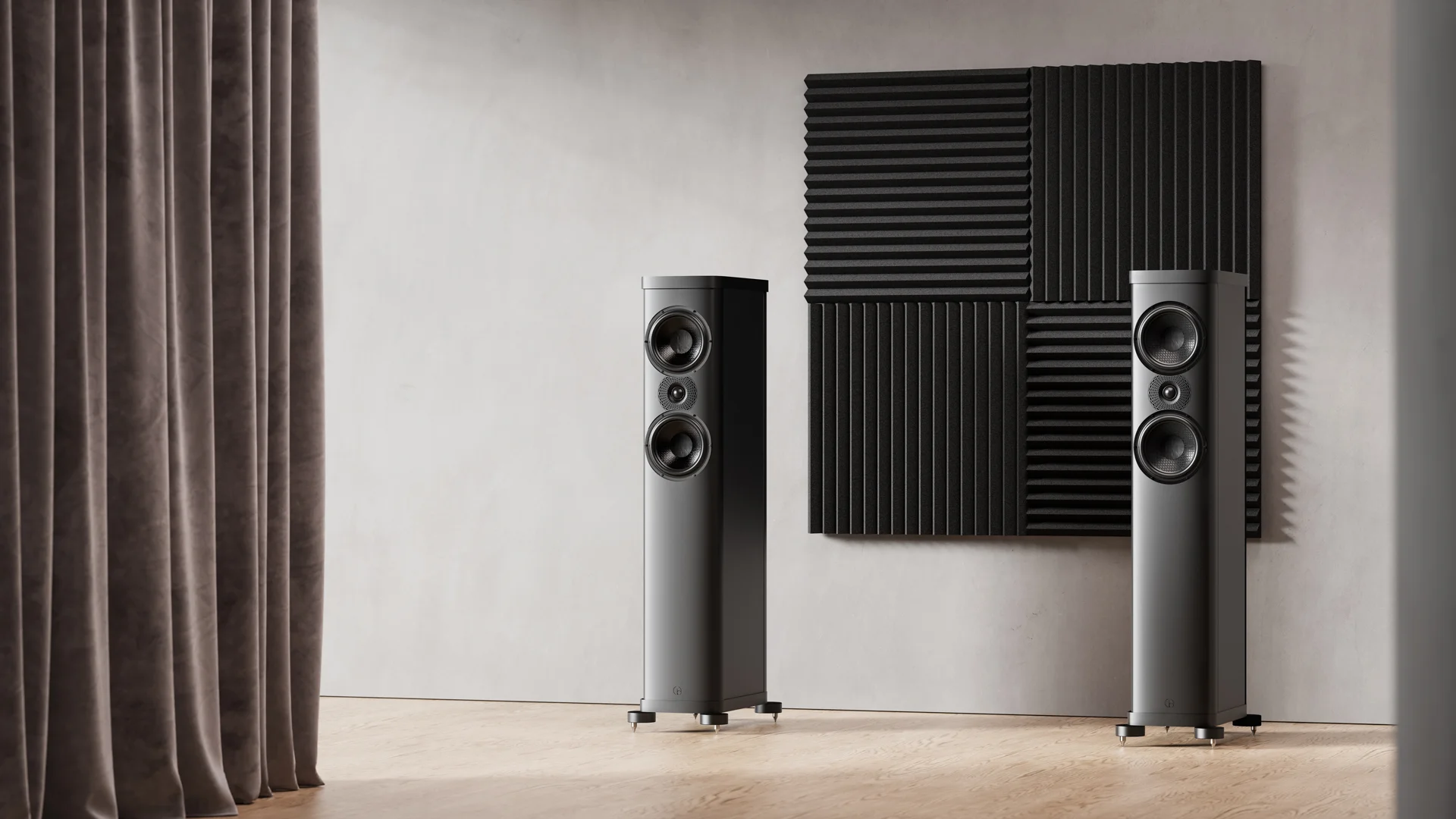
PRECISION SERIES.
ENGINEERED FOR YOU.
The P2.0 delivers scale and authority with absolute control. Combining a dedicated Tactic 2.0 midrange drive unit, with a dedicated Tactic 2.0 bass drive unit with the Leonardo Tweeter at the acoustic centre.
The P2.0 offers another level of performance within the Precision Series, upping the ante from the P1.0 – driving the room and the listener to a higher level, whilst still offering exceptional value.
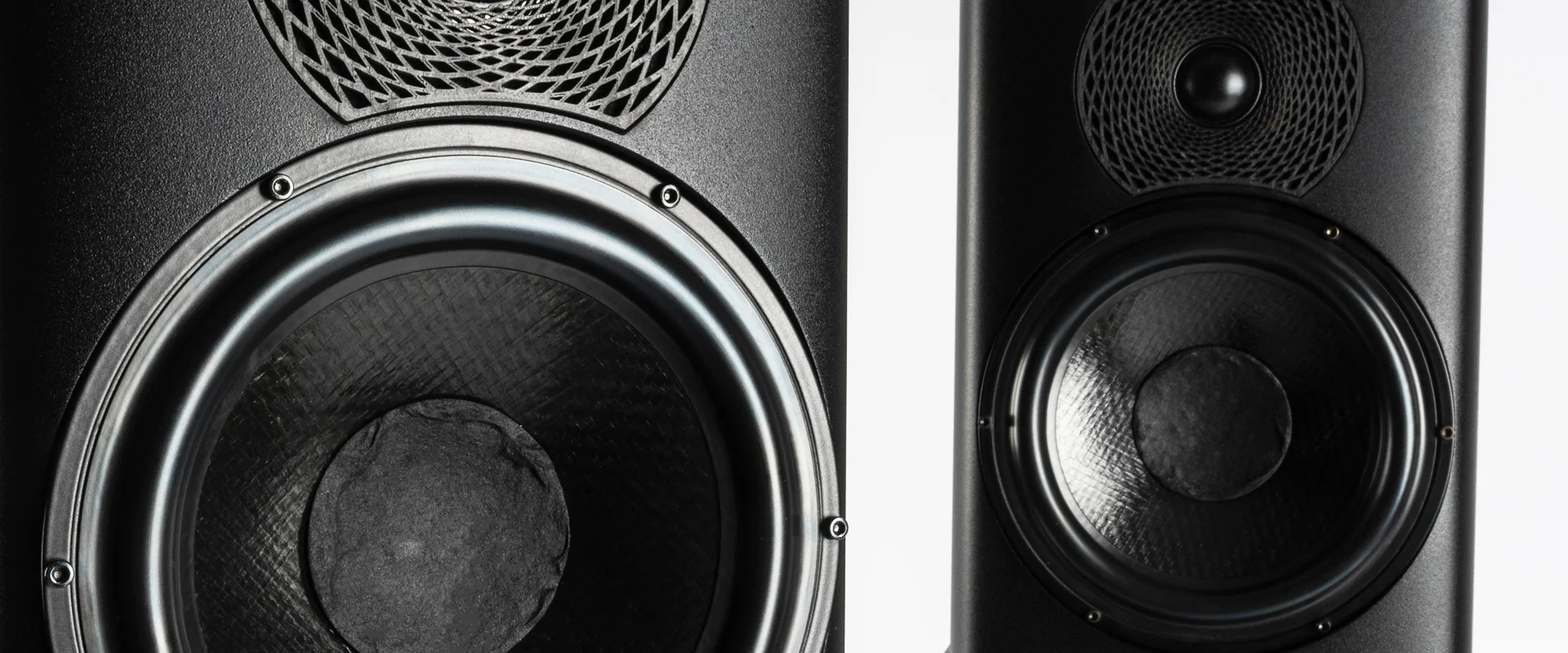
TACTIC 2.0 DRIVE UNIT
Wilson Benesch created the first iteration of its dynamic drive unit in 2002. Since then the Tactic Drive unit has evolved through three generations to arrive in its current form.
Wilson Benesch was the first company in the world to develop a consumer product that used Isotactic Polypropylene. It’s unique balance of high specific stiffness with exceptional damping afford the opportunity to create a reductive minimal crossover design.
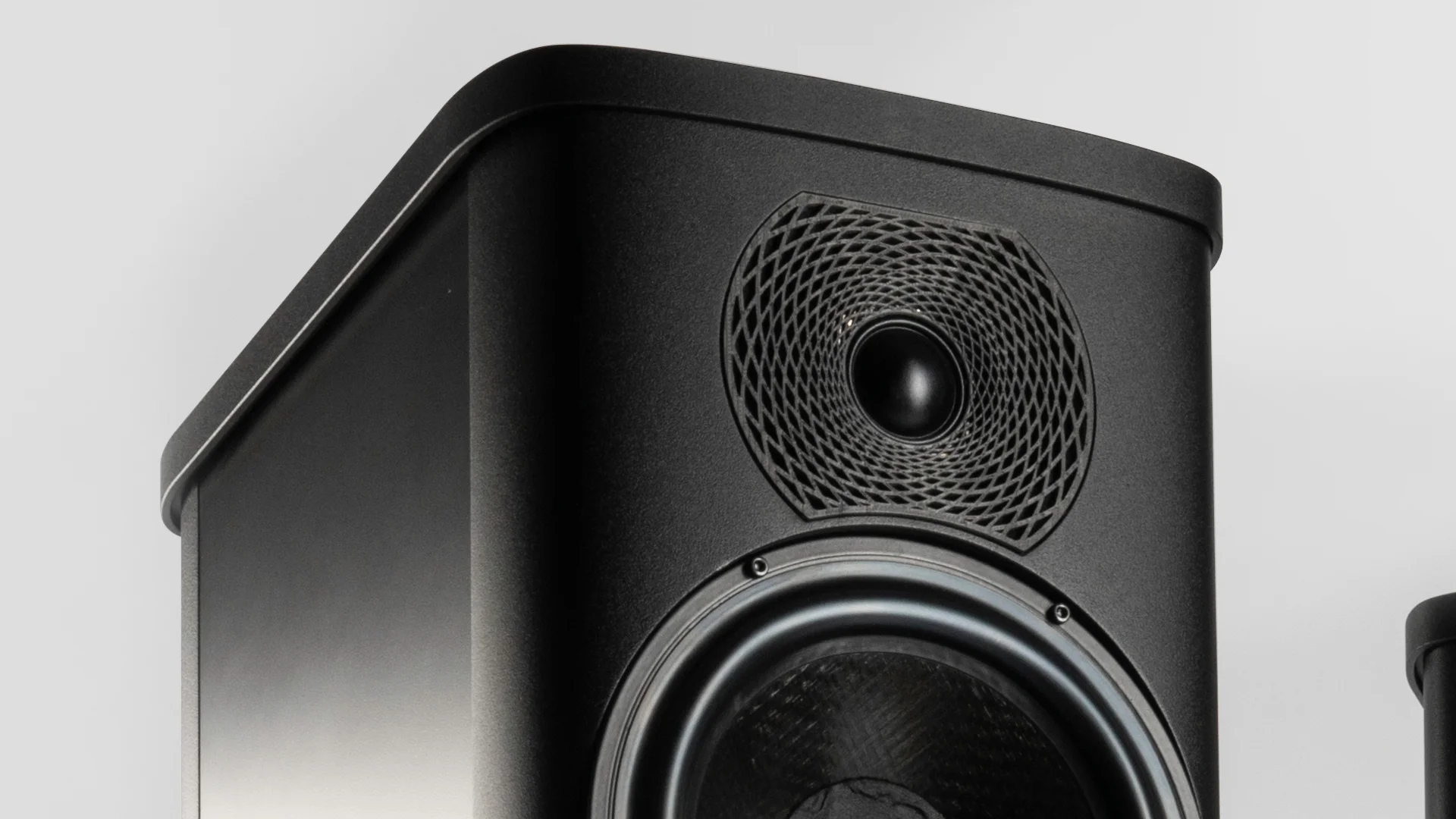
LEONARDO TWEETER
Wilson Benesch’s new high frequency transducer technology, the Leonardo Tweeter. Developed directly through an iterative design approach that gave birth to the Fibonacci and Semisphere Tweeters before it. As with the Fibonacci Tweeter found in Wilson Benesch’s reference loudspeaker Eminence, the Leonardo Tweeter features a geometrically optimised and decoupled polymer-carbon fibre faceplate.
This entirely proprietary component is manufactured in-house using State- of-the-Art 3D printing technology. The faceplate acts as a waveguide, delivering optimal dispersion and phase characteristics for the Leonardo Tweeter.
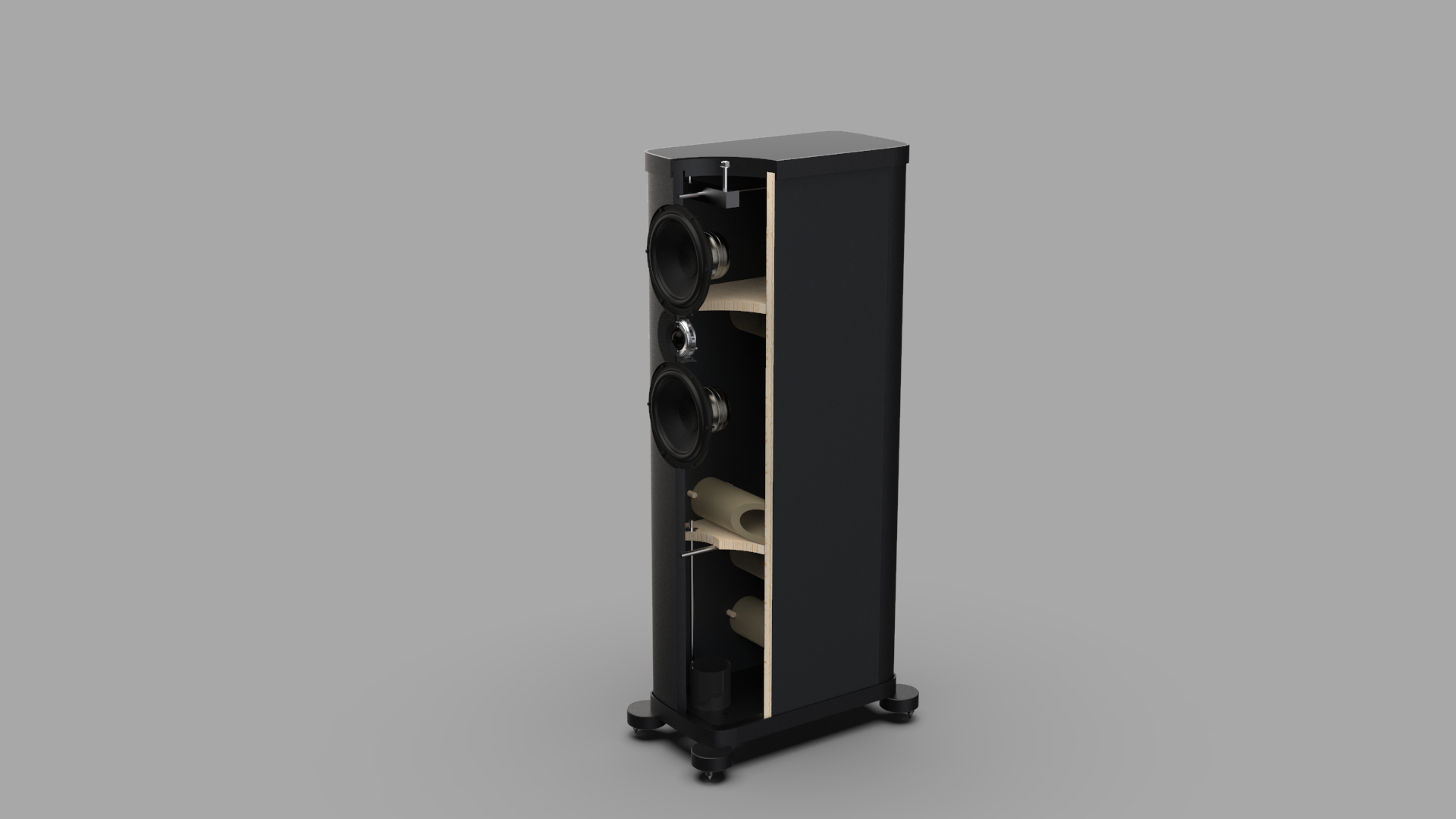
HYBRIDISED ENCLOSURE
Central to the Precision Series design is the philosophy that multiple materials should be used in enclosure design to create hybridised structures. The Precision Series enclosure represents an engineering solution to a product design problem, that of controlling structural born resonant energy within a loudspeaker enclosure to reduce the Q-factor of the enclosure as much as possible. The distinct Precision Series top and bottom ‘caps’, whilst elegant forms, are in fact critical components in the pursuit of this goal.
Precision CNC-machined from solid billets of aluminium, the caps lock in position the front and rear aluminium baffles with the wood side panels. The caps are then tied along the vertical axis of the Precision Series enclosure using 13mm steel bars that brace the enclosure and compress the whole structure to ensure it is as sonically inert and stiff as possible. Additionally, along the horizontal axis tubular structures lock into pre-routed grooves to provide both increased stiffness and damping of the Precision Series enclosure in this axis.
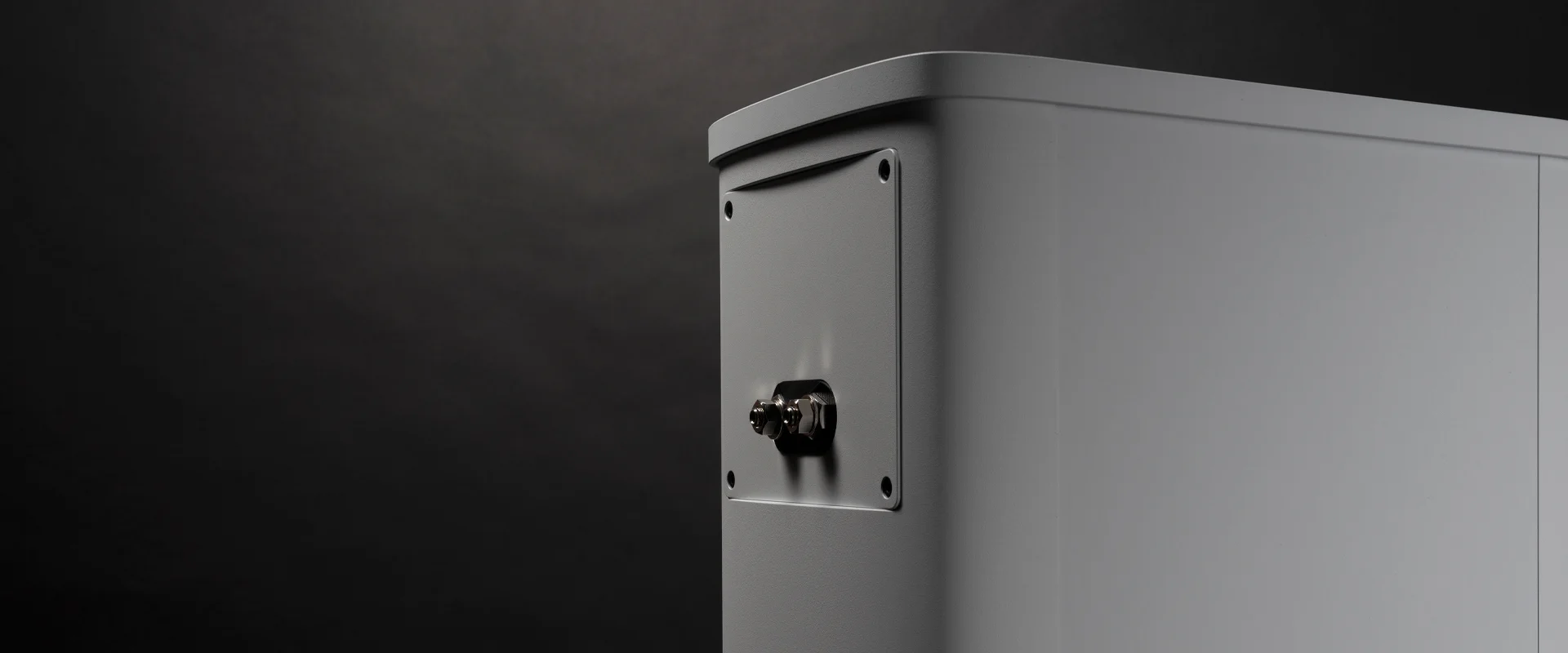
DIRECT MIDRANGE AMPLIFIER COUPLING
The unique balance of high specific stiffness with exceptional damping within the Isotactic Polypropylene diaphragm affords the opportunity to create a reductive minimal crossover design. This philosophy is further developed and underpinned by complete control over every single component within the drive unit design and critically the enclosure design itself, allowing electro-acoustic roll off of the drive units.
It is an elegant approach to sound design executed in the company’s Eminence loudspeaker and now in the P2.0 and P3.0 loudspeakers where the midrange drive unit is directly coupled to the amplifier with no crossover components in the signal pathway. Natural, effortless and open – the Wilson Benesch sound is well recognised now globally.
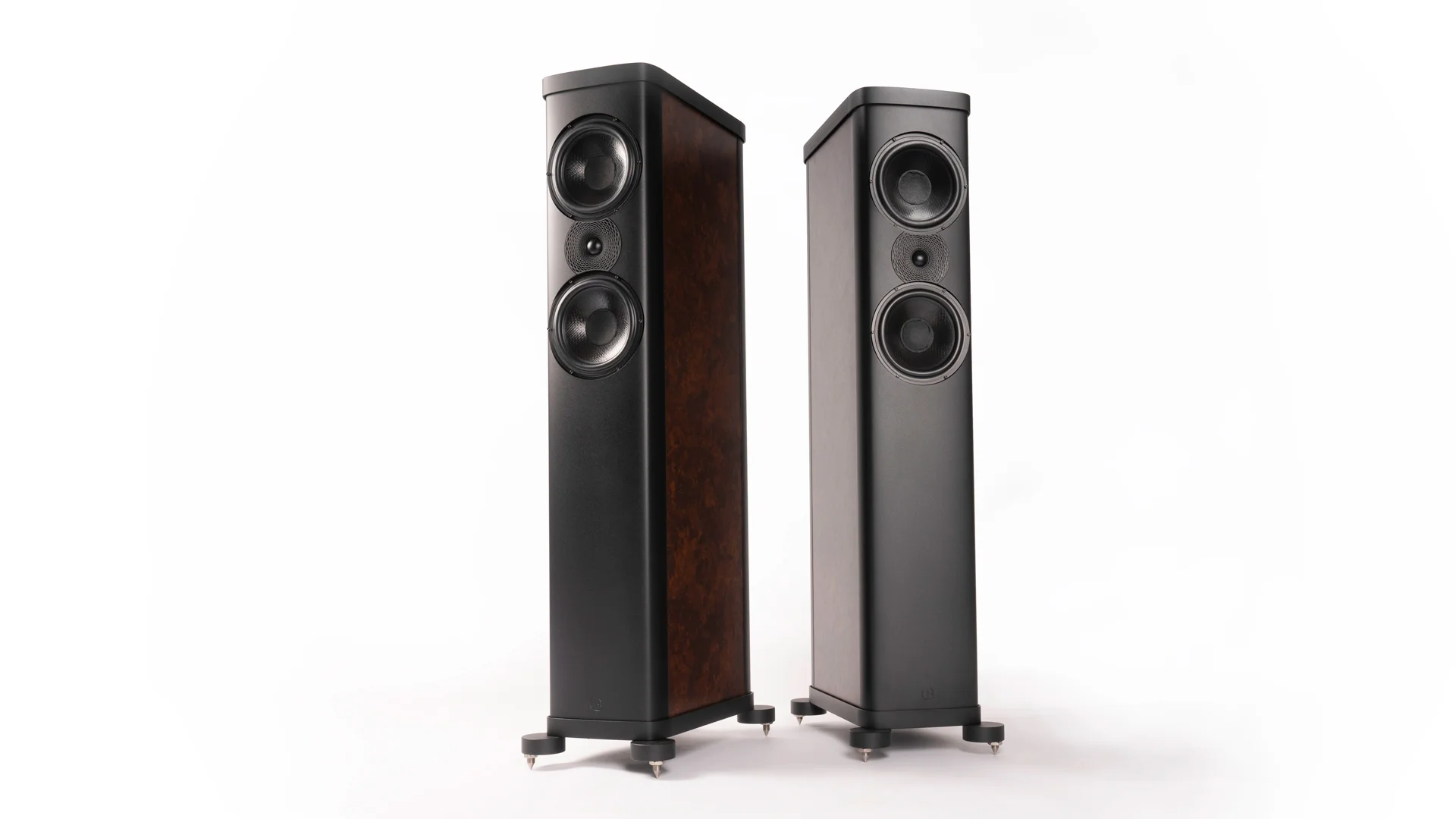
It doesn’t take us long to realise that these Wilson Benesch floor-standers are exceptional performers. Rarely do we hear speakers that sound so clear and transparent. We listen to Mahler’s Symphony No.2 (one of our favourite classical music tracks to test with) and are transported to the concert hall, the speakers’ excellent resolution providing all the acoustic clues necessary to take us there.
That same ability to dig up low-level details gives us convincing instrumental textures and a degree of finesse in tracking subtle dynamic shifts that we haven’t heard bettered at this price. Of course, there’s muscle here too, with crescendos rendered with conviction and no shortage of brute force. We’ve heard rivals with more in the way of punch, but nothing that combines that with the degree of control and delicacy these towers have.
What Hi-Fi?
SPECIFICATIONS
DRIVE TECHNOLOGY | |
Midrange | 170mm(7″) Wilson Benesch Tactic 2.0 |
Tweeter | 25mm (1”) Wilson Benesch Leonardo Silk Dome Tweeter |
Bass | 170mm (7”) Wilson Benesch Tactic 2.0 |
CROSSOVER TECHNOLOGY | |
Midrange | Directly Amplifier Coupled within an Acoustically Optimised Enclosure, Port Tuned with 500Hz Roll-off |
Tweeter | Second-Order, 5kHz High Pass Filter |
Bass | First-Order, with laminated high density iron cored inductors with high coil packing ratio. Ported underside of enclosure |
ENCLOSURE TECHNOLOGY | |
Materials | Hybridised Construction of aluminium, birch ply, steel & high density compressed paper |
Ties & Compression | U-Section High Torsion 13mm Steel Damping Rods in Vertical Axis |
Cross Bracing | Tubular Cross Bracing & Damping in the Horizontal Axis |
Baffle | Aluminium Baffle, Rear Enclosure, Top Plate & Bottom Plate – all tied using steel bar |
Tweeter Enclosure | Sealed Enclosure |
MEASUREMENTS | |
Type | 2.5-way |
Impedance | 6 Ohms Nominal / 4 Ohms Minimal |
Sensitivity | 89dB @ 1-Meter on axis, 2.83V Input |
Frequency Response | 34Hz – 24kHz +/- 2dB |
DIMENSIONS & TERMINATIONS | |
Height | 1105mm (43.5”) |
Width | 205mm (8.07″) Baffle // 269mm (10.6”) Widest Point on Foot |
Depth | 472mm (18.6”) |
Weight | 50kg (110lbs) Single Enclosure |
Terminations | Single-wired, located on the rear of the enclosure |

